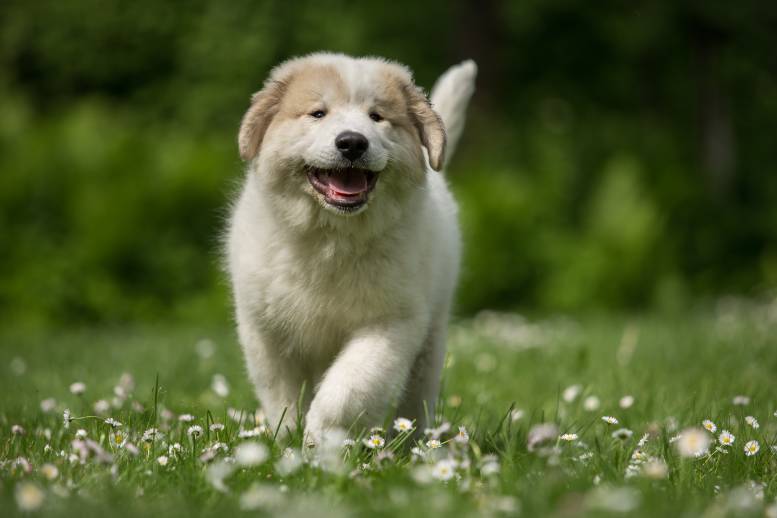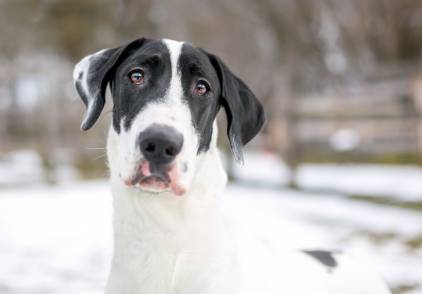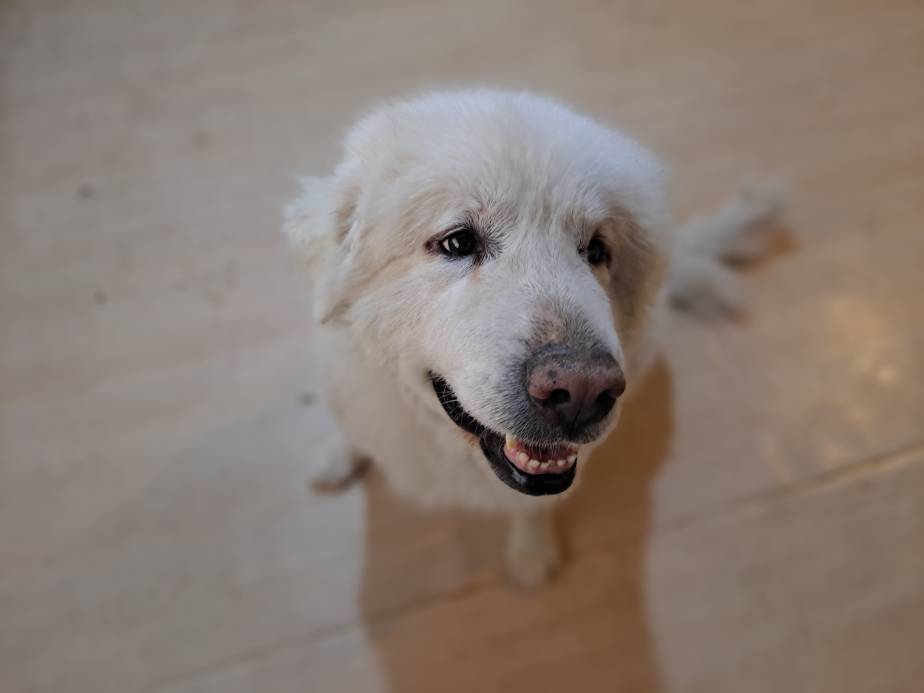Connect with a verified veterinarian in minutes. Licensed vets are available 24/7 to answer your questions. No need to worry about your furry family member.
Are you considering adopting a Great Pyrenees puppy? If so, then you’ve come to the right place! You may be wondering where to adopt a puppy and what to expect from a Great Pyrenees puppy of this age!
We’ve got you covered! In this article, we’ve put together some information about the best places to adopt a Great Pyrenees puppy, as well as what to expect from a five-month-old Great Pyrenees fur baby! Let’s get started!
What is a Great Pyrenees?
Great Pyrenees are called “great” for a reason; these are very large dogs! They were originally bred to be herding dogs in the Pyrenees Mountains of France. The dogs were used to herd and protect the sheep from wolves, bears, and other predators.
These dogs are descended from Mastiff-type dog breeds. They are known for being brave and very protective. And as you know, herding dogs tend to be intelligent, which is the case with this dog breed.
An interesting note about the dog’s fluffy white coat—Great Pyrenees’ coats helped them blend in with the sheep. When a predator or robber tried to get the sheep, the dog would all of a sudden appear! However, the reality is the dog was in amongst the sheep, camouflaged by his white, thick coat that looks very similar to a sheep!
The dogs tend to be extremely protective and territorial, which is why they make such great guardians and protectors. They’re very wary of strangers. For these reasons, Great Pyrenees require early and consistent training and socialization. The dogs are very loving with their own family, however.
Many people believe these dogs should be kept outside all the time. However, that’s simply not the case. Great Pyrenees need to be inside with their families. Keeping one of these noble dogs chained outside all the time is cruel and can lead to aggressive, destructive behaviors.
Remember, these dogs are very large! For example, a Great Pyrenees may stand between 25 to 32 inches and weigh between 85 to 100 lbs and more!
Where to Find a Great Pyrenees Puppy?
Experts usually recommend adopting your puppy from a reputable breeder. You can find a breeder through the AKC’s breeder referral service. Here, the breeders included on the site must meet stringent requirements before they can be listed. So, adopting your Great Pyrenees puppy from one of these breeders should be a great experience.
When you find one or more breeders, be sure to ask a few questions about their facility and the puppies:
- Can you provide genetic clearances, such as the GCD Hip Certification, OFA Hip Certification, or another?
- What dog clubs do you belong to?
- What requirements do you have for puppy adopters?
- How do you test a puppy’s temperament and aptitude?
- Are you available to answer questions and provide advice if we need assistance once the puppy is in our home?
- Have the puppies received all of the required vaccinations for their age? Have they been checked by the vet?
- Can you provide references of past puppy adopters?
- Is there a guarantee that comes with the puppy?
You can also find Great Pyrenees puppies at a rescue or shelter! Just be sure to check the facility for cleanliness and how the dogs appear. Are the dogs clean, calm, and comfortable around humans? Do the dogs and puppies appear overcrowded? If all seems to be good, then the facility is probably OK.
Most shelters ensure their puppies have received all the required vaccinations and any necessary medical treatment. The one downside of adopting a puppy from the shelter is that you won’t have much information about their parents and possible genetic issues. Still, these puppies are as deserving of a loving home and family as any other puppies!

Review symptoms, medications & behavior to keep your pets healthy with a Vet Online in just minutes.
Ask a Vet Live NowHow Much Does a Great Pyrenees Puppy Cost?
The cost of a Great Pyrenees puppy will vary depending on several factors. If you choose to adopt from a breeder, the price will be much higher than in a shelter or rescue. Generally speaking, adoption costs are usually higher in the city and lower in rural areas.
Expect a puppy from a reputable breeder to cost between $1000 to $2500 or more. Puppies from a rescue may cost as much as $500 or less.
What to Expect from Your Five Month Old Great Pyrenees Puppy
For starters, your puppy will be larger than other breeds of puppies! They’re also very calm, though they can be a handful. For this reason, it’s crucial to consistently train and socialize your fur baby.
These dogs can also be messy eaters and tend to drool quite a bit. They’re also very sensitive to temperature and don’t do very well in hot environments.
The puppies are very calm and gentle with children and want to be a member of the family! Your puppy will also love chewing. Keep in mind this is a very large, strong puppy. The reality is they can do a ton of damage when chewing up anything. Shoes will not be any challenge; however, furniture and woodwork may look as if a giant termite has chewed them up! So, be sure to buy your Great Pyrenees puppy chew toys. These should be made of durable materials that can withstand the strong teeth and jaws of your puppy.
What to Feed Your Great Pyrenees Puppy
Your Great Pyrenees puppy will grow quite fast during this period. For this reason, he will require high-quality puppy food made for large, active puppies. Your puppy needs plenty of protein, so be sure the dog food label lists meat as the first ingredient.
Puppy food for this dog breed should not contain high amounts of calcium. The reason is that too much calcium is absorbed by the puppy’s bones, which tend to grow quickly. If the bones are too rich in calcium, it can lead to skeletal abnormalities. So, be sure to buy puppy food that contains about 3 grams/1000 kcal of calcium and 0.8 to 1.0% of phosphorus.
Your fur baby will do better on a schedule, where feeding is done about three times a day.
Summing It Up
A Great Pyrenees puppy can be a wonderful companion; however, they do require a lot of training and socialization from a young age. If you keep the training consistent, your puppy will grow up to become a beautiful, gentle, well-adjusted adult dog.
You and your fur baby will have many years of companionship and fun!
Connect with a verified veterinarian in minutes. Licensed vets are available 24/7 to answer your questions. No need to worry about your furry family member.

Kyoko
Kyoko is from a family of 3 and moved to New York with her parents and siblings when she was 13. Kyoko is fond of spending a great amount of time with pets, specifically her beagle Luna and cat Missy. Her boyfriend often complains that she spends too much time giving attention to their animals. Kyoko has written dozens of articles concerning pets and is aiming at owning a pet shop one day!
Review symptoms, medications & behavior to keep your pets healthy with a Vet Online in just minutes.
Ask a Vet Live Now




